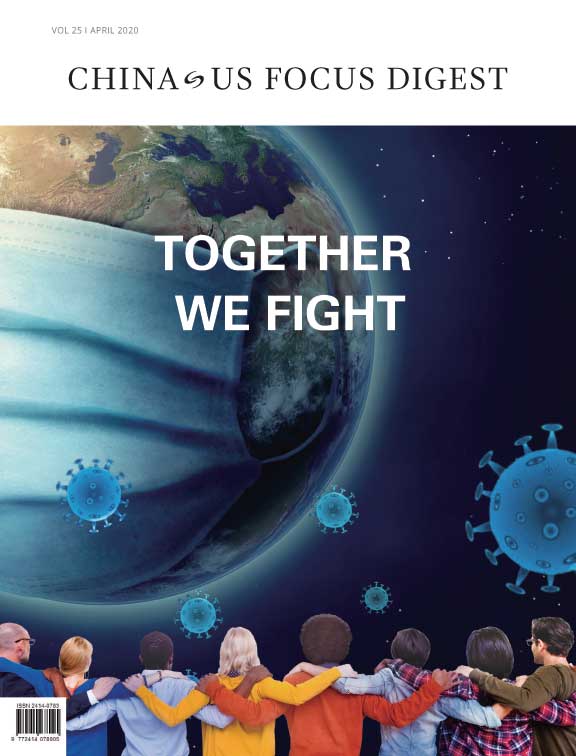Click to read the latest COVID-19 special coverage
As the COVID-19 virus spreads across the U.S., some Americans have blamed the People’s Republic of China for creating the pandemic. They also have highlighted the economic consequences of the crisis, particularly the disruptive drop in production of goods destined for U.S. manufacturers.
This has led to calls to use the crisis as an opportunity to decouple the two nations economically, one reason for such being to protect U.S. companies and consumers from supply disruptions. There always is a case for diversification, of course, as well as domestic production of narrowly defined essential goods. Yet autarky long has been recognized as a strategy of economic impoverishment.
The daily costs would prove far greater than the occasional complication resulting from foreign supplies. Indeed, so far Americans have not suffered in an obvious way from the PRC’s manufacturing slowdown, which appears to be ending as the U.S. readies for the worst of the pandemic. Panic buying at home has been a far bigger problem than closed factories abroad. Moreover, domestic production is not necessarily more secure, sometimes facing greater regulatory barriers as well as other bottlenecks and failures.
The benefits of international trade remain great, ensuring the ability to acquire goods that are better, cheaper, and varied. The diversity in product, process, and location offer important alternatives to sometimes limited domestic supplies. Further, the increased prosperity that results from economic specialization generates a long-term cushion to temporary disruptions. Countries forced to practice veritable autarky because of foreign sanctions, such as Iran, become desperate when faced with a healthcare crisis like the present.
There are other important benefits of “coupling”. For instance, countries that share an economic future are more likely to cooperate in other areas. Although Beijing clamped down on the export of medical supplies at the height of its campaign against COVID-19, it now can assist other nations—if it chooses to do so. Italy called upon its European neighbors for aid and got nothing; the PRC sent a planeload of supplies. That gesture might have been primarily motivated by politics, but it reflected China’s desire to expand existing ties.
Washington’s relationship with Beijing has been difficult of late, but combatting the virus is a shared interest, especially given each nation’s reliance on the other. This would be a good moment for U.S. and Chinese officials to put aside geopolitical and economic disputes and discuss what the PRC has learned that can help America stem the viral tide, as well as what the U.S. can do to help prevent a second infection wave from heading back to China.
Equally important, Beijing’s ties with America and the rest of the Western industrialized world have helped transform China. No, the result has not been a democratic state friendly to liberal values, especially under President Xi Jinping, who is making his nation less free. However, a democratic state is too high a standard. It might have been right for Americans to hope for such a change, but it was not right to expect that result.
Today’s China is radically different than what it was when Mao departed this life on September 9, 1976. Indeed, that world of nearly a half century ago is but a faint memory, seemingly as distant as the Imperial China of antiquity. While those most inclined toward military confrontation with the PRC worry about its economic growth, the country’s transformation into an industrial powerhouse puts much at stake in the preservation of a peaceful international order. Look at the fancy skyscrapers that make up Shanghai’s skyline and equally new, if more often squat, buildings that fill Beijing. They all would be risk in a war, or full-scale economic clash.
Moreover, China is no longer a monolith. Under Mao, there was little opportunity to act or think differently. Today even virulent repression has not snuffed out independent opinion. Citizen journalists ventured to Hubei province to report on the pandemic despite government restrictions; social media exploded over government censorship, with multiple demands for free speech. A few weeks ago, Xu Zhangrun, a law professor suspended for previously voicing his views, was placed under house arrest after chastising the government. More recently Ren Zhiqiang, a real estate mogul and frequent regime critic, disappeared after criticizing Xi’s response to COVID-19.
Dissent seems inevitable in the new China. Millions of tourists travel abroad. Hundreds of thousands of students now study in the West. Academics and businessmen routinely head overseas. It is a revolution they all may not be prepared to undertake, but their activities undermine attempts to impose the groupthink orchestrated by a small group of leaders clustered in Beijing’s Zhongnanhai compound.
None of this means most Chinese people desire to become Americans or want Washington to determine their future. They are patriots, just as fervently nationalistic as the U.S. hawks who want to isolate the PRC. Nevertheless, many of the former are fiercely independent and ready to respond when provoked. Even when fearful Chinese people tell the Chinese Communist Party what it demands to hear, many still desire a say in their future.
Indeed, even today people are willing to demonstrate their biting contempt for self-serving party apparatchiks. The death of Dr. Li Wenliang after he was silenced by the CCP generated a ferocious outpour of anger on social media. When Wuhan’s new party chief Wang Zonglin proposed “gratitude education” so the people would “thank the General Secretary [Xi], thank the Chinese Communist party, heed the party, walk with the Party, and create strong positive energy,” some responded with vitriol.
The PRC will be one of the biggest international challenges facing America in the coming decade. However, the coronavirus demonstrates the need for greater cooperation, not isolation. The long-term impact of decoupling would be to weaken the U.S. and radicalize China. Now is not the time to apply a remedy far worse than the disease being treated.

